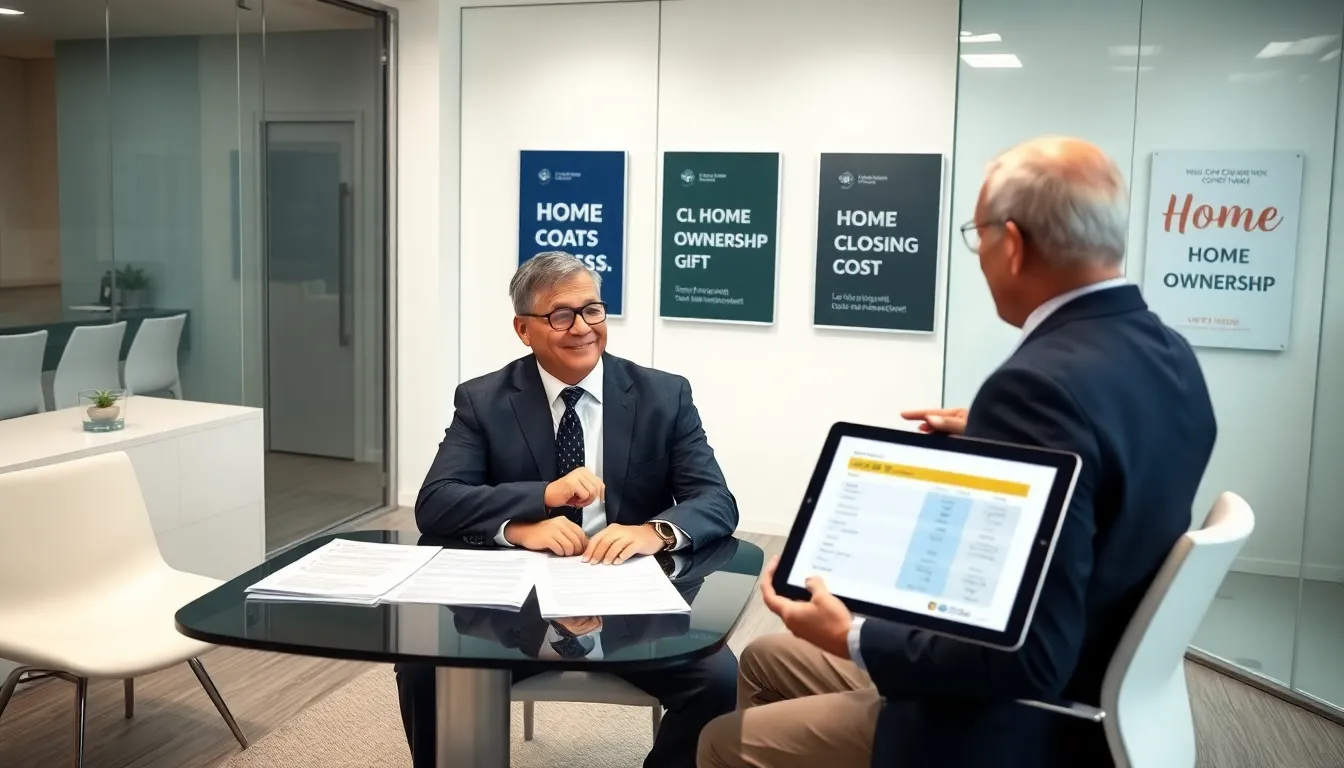Table of Contents
ToggleWhen it comes to home buying, the term “closing costs” can sound as appealing as a root canal. But fear not, because when it comes to VA loans, the rules shift significantly. Many veterans wonder, “Do VA loans pay closing costs?” It’s a vital question, and understanding the answer can save thousands of dollars and potentially some hair-pulling frustration. Buckle up as we unravel the intricacies of VA loans and closing costs, pack your bags because this journey might just lead you to your dream home, minus a hefty financial burden.
Understanding Closing Costs in VA Loans

What Are Closing Costs?
Closing costs encompass a variety of fees that buyers incur during the final steps of purchasing a property. These costs typically range from 2% to 5% of the home’s purchase price. They can include lender fees, title searches, appraisal fees, and even prepaid taxes and insurance. It’s like packing for a trip, you think you’re just bringing a suitcase, but suddenly you realize you’ve got a mountain of extra stuff to carry.
Typical Closing Costs for VA Loans
For VA loans specifically, closing costs can take on a different form. While some fees still apply, such as appraisal and recording fees, the good news is that there are fewer out-of-pocket expenses involved compared to conventional loans. A veteran could encounter origination fees, escrow fees, and title insurance costs, but the inclusion of certain benefits allows for significant savings. Eventually, knowing what costs are associated with the loan can prevent unwanted surprises down the line.
How VA Loans Handle Closing Costs
Who Pays Closing Costs in a VA Loan?
Understanding who covers these costs is crucial for veterans. Borrowers are generally responsible for a portion of the closing costs: but, there’s leeway. The VA allows sellers to contribute up to 4% of the purchase price towards closing costs. This means the seller can help shoulder some of the financial burden, definitely a win-win.
Seller Contributions to Closing Costs
Let’s face it: negotiating isn’t always easy, especially when it comes to money. Still, many sellers are open to covering some closing costs to entice buyers. This is especially true in a buyer’s market where competition is low. With VA loans, sellers have the flexibility to not only help out with closing costs but can also contribute towards things like paying off debts or covering necessary repairs, all making the deal more appealing to potential buyers.
Can Closing Costs Be Rolled into a VA Loan?
Good news. In certain situations, veterans can indeed roll closing costs into their VA loans, unlike other types of loans where this might be frowned upon. It’s vital to know that the VA actually permits borrowers to finance some of these costs into the overall mortgage amount. This could ease immediate financial strain, allowing you to purchase a home without having to fork out a wad of cash upfront. But, this means paying interest on the closing costs over the life of the loan, so it’s essential to evaluate your long-term financial strategy.
Strategies to Minimize Closing Costs for VA Loans
Negotiating Closing Costs with the Seller
When attempting to minimize closing costs, negotiation skills can be as essential as assembling IKEA furniture without instructions. Veterans can openly discuss with sellers to cover a larger portion of these fees or even add them into the sales price. Many sellers are willing to negotiate to make a sale happen. Remember, a little back-and-forth can save significant bucks.
Using VA Loan Benefits to Reduce Out-of-Pocket Expenses
VA loans come with built-in advantages, like no down payment requirements and competitive interest rates. Beyond that, there’s a chance to use the VA’s Fees and Closing Costs Worksheet to compare loan offers and identify potential savings. By leveraging these benefits, veterans can find ways to lessen their immediate out-of-pocket expenses significantly, allowing them to focus on making their new house a home.







